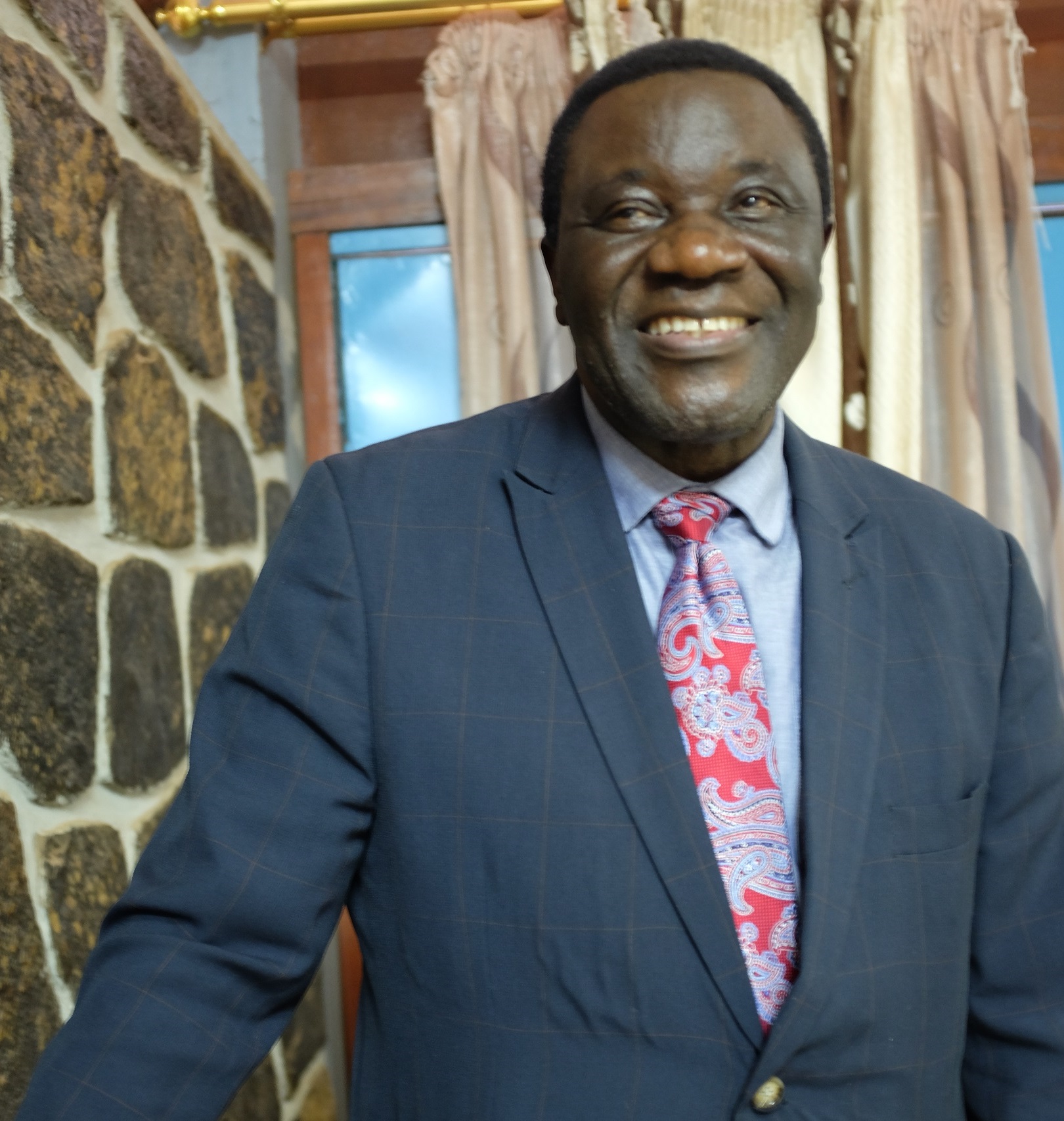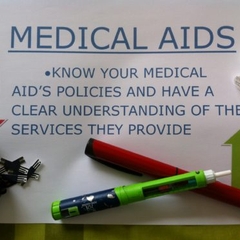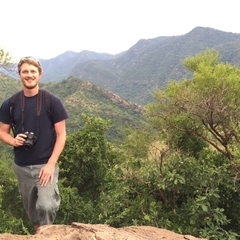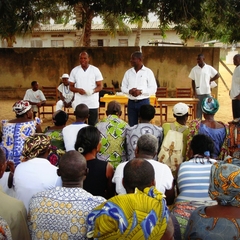An Interview with Professor Jean-Claude Mbanya
4 Apr 2017, 10:15 a.m. in Global Stories, Interviews by James Elliott
Our trustee James Elliott was recently in the African nation of Cameroon. While at the University of Yaoundé, he had the opportunity to speak with Professor Jean Claude Mbanya, a leading voice for people with diabetes in Cameroon, Africa and the World. We hope you enjoy reading their conversation, which has been edited for length and clarity.
Please tell me a little about yourself.
I am a Professor of Medicine and Endocrinology at the Faculty of Medicine at University of Yaoundé 1. I have played different roles in different places. I was president of the Africa Region of the International Diabetes Federation (IDF). I was Vice President of IDF and then President of IDF from 2009 to 2012.
I chaired the Task Force on Insulin Supplies for 3 terms, which was about 6 years. I was also responsible for providing insulin to Goma [Democratic Republic of the Congo], and to all the disasters in the world. I worked extremely hard with others to get World Diabetes Day. I was also involved in the UN high level summit for NCDs. So I have been involved in diabetes all my working years.
In Cameroon I run the National Endocrine Unit at the Central Hospital. I am also director of a biotechnology centre, and I am involved with the Changing Diabetes in Children Program. Before we started that program, the mortality for children [in Cameroon] was about 80-90%. After we started the program, with free insulin, free camps, free blood glucose metres, now we only have maybe 2 deaths per year. Now we have around 500 or so children living with diabetes. But these are just children. If you include people with type 1 diabetes over 18, we are at around 800 or 900 children.
I can remember my first camp, the children cried. Why? Because that was the first time in Cameroon the children could test their blood sugar before eating. It was the first time they could complain, ''oh my blood sugar is high, what should I do?''
I never thought kids with type 1 diabetes in Cameroon would have access to free insulin, free access to laboratory, free medication, free, free, free! It is interesting because we have saved the lives of so many children.
Was there a moment you decided, yes, I want to do diabetes work?
Oh yes. My father had diabetes; he died of a diabetic coma before I entered medical school. When I came to medical school I chose endocrinology which would suit very well diabetes. So I have diabetes in my family.
Could you describe what life living with type 1 diabetes is like in Cameroon?
Living with type 1 diabetes is very difficult if you are an adult because we have no social security or insurance, which means if you or your family cannot pay for your medication, you die. So it is very difficult to live with type 1 diabetes in Cameroon. But for the children, they have free access to everything through the program [Changing Diabetes in Children].
And the other thing with type 1 diabetes is the ability to measure HbA1c and receive follow-up. There are so many doctors in Cameroon who do not know how to follow up the cases. So follow-up is a problem here. And the last thing which is important is stigma associated with diabetes. People face things like work discrimination, others thinking diabetes is the end of the world, or if you have diabetes you are finished. Diabetes patients are stigmatized in their society, and often in their home.
Worst of all is having type 1 diabetes and coming from a poor home. The cost is such that the child should die so that the rest of the family should live. The costs of diabetes drain all the income of the family, so the other siblings of the family can't go to school. So what happens is that you die so the rest of the family can live.
I have a typical example in my own hospital. I used to bring drugs for a type 1 patient every time I would travel to and from Cameroon. I was held up one time for a long time, longer than expected. I saw the father of one of the children, who was always so depressed. When I saw him he was smiling, so I asked 'ah what has happened?'
He told me: Have you not heard? My daughter is dead.
I asked: Then why are you happy?!
He said: We could not afford to eat, we could not send our other children to school. It was better than she should die so that the rest of our family could live.
Wow that’s bleak. What is it like to be a health provider treating people with type 1 diabetes in Cameroon?
I have no problem because I work in a university hospital. But those who work in rural areas, who have no facilities – it is a nightmare.
Those who are not a specialist have a phobia of insulin. Whenever they see type 1 diabetes they are scared because manipulation of insulin is a very complex thing to understand and prescribe. So in terms of health care providers working in Africa, it is difficult to manage diabetes because it is a whole system disease. And you have to know how diabetes affects the rest of the body.
Why do you think the international community is not sufficiently addressing the problem of diabetes in Africa?
I think the Africans are not addressing their own problems. And I will tell you why.
The problem is that Africa is full of problems and there is prioritization of other health needs such as maternal mortality, nutrition, diarrhea, infant mortality, HIV/AIDS, malaria, tuberculosis… so there are many competing health priorities.
So much so, that what happens is the donors are working on their own programs, and the programs of their countries. And diabetes is not one of their priorities. That’s all. They know it exists, they know what to do, but they are not doing it because it is not a priority of governments in Africa or their donors.
How can our readers help the situation and what advocacy needs to happen for diabetes in Africa?
I think diabetes is a family. We are in this together. What they can do is form clubs to donate extra metres, extra insulin, like they do in other places, to support Africa. They can also form foundations and support children with type 1 diabetes in Africa.
More importantly, support the needs of diabetes patients in Africa to their own governments. Diabetes should be put as a priority on development programs, on cooperation programs. All funds coming into Africa in terms of health should have a diabetes component.







